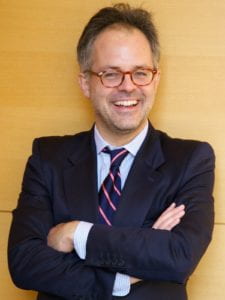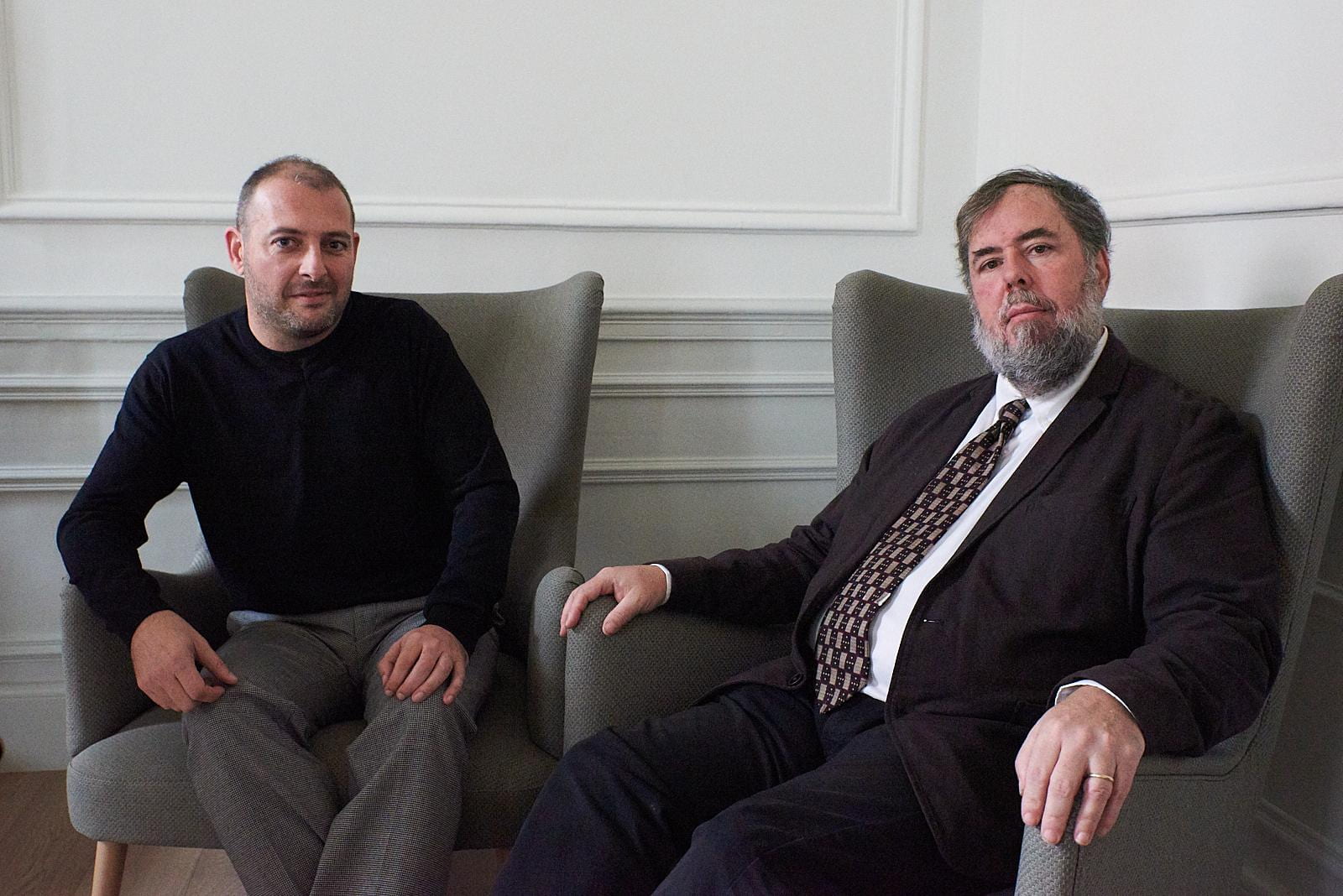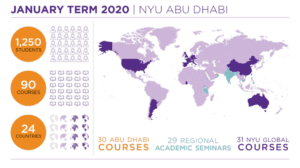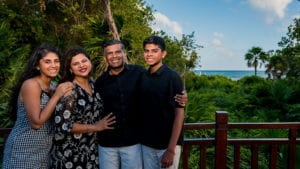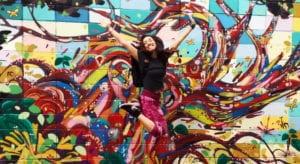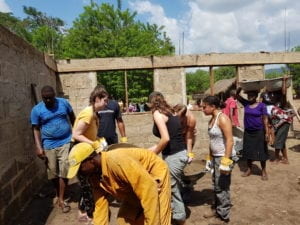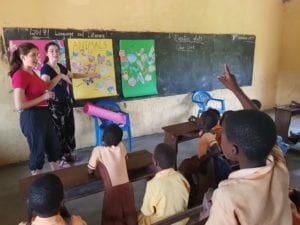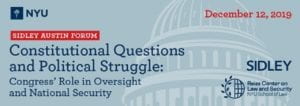 Sidley Austin LLP, NYU School of Law and the Reiss Center on Law and Security are delighted to host the 4th annual Sidley Austin Forum at NYU Washington, DC on December 12, 2019.
Sidley Austin LLP, NYU School of Law and the Reiss Center on Law and Security are delighted to host the 4th annual Sidley Austin Forum at NYU Washington, DC on December 12, 2019.
At a moment of acute contest between the branches, the program will probe the views of leading policymakers on Congress’ powers, limitations and responsibilities in our constitutional system. This Forum will feature remarks and discussion with leading lawmakers and former executive branch officials.
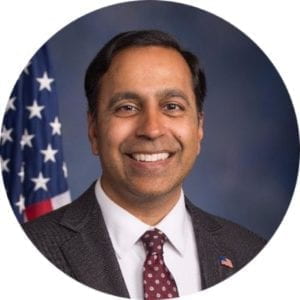 Congressman Raja Krishnamoorthi was elected in November 2016 to represent the 8th District of Illinois, which includes the west and northwest suburbs of Chicago. Raja serves on the Oversight Committee, for which he is also the Chairman of the Subcommittee on Economic and Consumer Policy, as well as on the House Intelligence Committee. In addition to this committee work, Raja was selected as an Assistant Whip and serves on the Steering and Policy Committee.
Congressman Raja Krishnamoorthi was elected in November 2016 to represent the 8th District of Illinois, which includes the west and northwest suburbs of Chicago. Raja serves on the Oversight Committee, for which he is also the Chairman of the Subcommittee on Economic and Consumer Policy, as well as on the House Intelligence Committee. In addition to this committee work, Raja was selected as an Assistant Whip and serves on the Steering and Policy Committee.
Raja’s policy platform focuses on growing and strengthening the middle class by supporting small businesses, rebuilding our infrastructure, and protecting Social Security and Medicare. Raja knows our economy works best when it works for all of us, and that’s why he’s fighting to make college more affordable, expand access to paid sick and parental leave, and guarantee equal pay for equal work.
Raja is the child of immigrants and was reared in Peoria, Illinois. He attended public schools in Peoria and was a valedictorian of his high school class. Scholarships and student loans allowed Raja to graduate summa cum laude from Princeton University with a degree in mechanical engineering and a certificate from the Woodrow Wilson School of Public Policy. He then graduated with honors from Harvard Law School and clerked for a federal judge before practicing law in Chicago.
Raja pursued public service while practicing law and was appointed by Illinois Attorney General Lisa Madigan as a Special Assistant Attorney General to help start the state’s Public Integrity Unit created to root out corruption in Illinois. As a member of the Illinois Housing Development Authority, Raja chaired its Audit Committee, helping to provide thousands of low and moderate-income families across the state with affordable housing. Raja also served as Illinois Deputy Treasurer. There, he oversaw the state’s technology venture capital fund and helped revamp programs such as the state’s unclaimed property program to become leaner and more efficient.
After his time in the Illinois Treasurer’s Office, Raja returned to the private sector, serving as president of research-oriented small businesses developing technology in the national security and renewable energy industries. Raja also served as the Vice-Chair of the Illinois Innovation Council and co-founded InSPIRE, a non-profit that provides inner-city students and veterans with training in solar technology.
Raja and his wife, Priya, a physician, live in Schaumburg with their two sons and baby daughter.
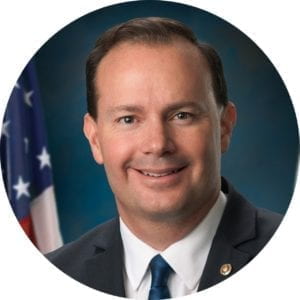 Elected in 2010 as Utah’s 16th Senator, Mike Lee has spent his career defending the basic liberties of Americans and Utahns as a tireless advocate for our founding constitutional principles.
Elected in 2010 as Utah’s 16th Senator, Mike Lee has spent his career defending the basic liberties of Americans and Utahns as a tireless advocate for our founding constitutional principles.
Senator Lee acquired a deep respect for the Constitution early on. His father, Rex Lee, who served as the Solicitor General under President Ronald Reagan, would often discuss varied aspects of judicial and constitutional doctrine around the kitchen table, from Due Process to the uses of Executive Plenary Power. He attended most of his father’s arguments before the U.S. Supreme Court, giving him a unique, hands-on experience and understanding of government up close.
Lee graduated from Brigham Young University with a Bachelor of Science in Political Science, and served as BYU’s Student Body President in his senior year. He graduated from BYU’s Law School in 1997 and went on to serve as law clerk to Judge Dee Benson of the U.S. District Court for the District of Utah, and then with future Supreme Court Justice Judge Samuel A. Alito, Jr. on the U.S. Court of Appeals for the Third Circuit.
Lee spent several years as an attorney with the law firm Sidley & Austin specializing in appellate and Supreme Court litigation, and then served as an Assistant U.S. Attorney in Salt Lake City arguing cases before the U.S. Court of Appeals for the Tenth Circuit.
Lee served the state of Utah as Governor Jon Huntsman’s General Counsel and was later honored to reunite with Justice Alito, now on the Supreme Court, for a one-year clerkship. He returned to private practice in 2007.
Throughout his career, Lee earned a reputation as an outstanding practitioner of the law based on his sound judgment, abilities in the courtroom, and thorough understanding of the Constitution.
Today, Lee fights to preserve America’s proud founding document in the United States Senate. He advocates efforts to support constitutionally limited government, fiscal responsibility, individual liberty, and economic prosperity.
Lee is a member of the Judiciary Committee, and serves as Chairman of the Antitrust, Competition Policy and Consumer Rights Subcommittee protecting business competition and personal freedom.
He also oversees issues critical to Utah as the Chairman of the Water and Power Subcommittee of the Energy and Natural Resources Committee and serves on the Commerce Committee as well.
In 2019, Lee became the Chairman of the Joint Economic Committee where he is overseeing the Social Capital Project.
Lee and his wife Sharon live in Alpine, Utah, with their three children. He is a member of The Church of Jesus Christ of Latter-day Saints and served a two-year mission for the Church in the Texas Rio Grande Valley.
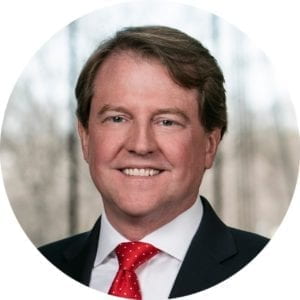 Don McGahn represents clients before government agencies, in enforcement matters, and in court disputes arising from government regulation or action. He handles litigation, crisis management, regulatory compliance, and political issues.
Don McGahn represents clients before government agencies, in enforcement matters, and in court disputes arising from government regulation or action. He handles litigation, crisis management, regulatory compliance, and political issues.
Prior to rejoining Jones Day in 2019, Don served as Counsel to the President of the United States, advising Donald J. Trump on all legal issues concerning the President and his administration, including constitutional and statutory authority, executive orders, international agreements, tariffs, trade, administrative law, and national security. Don also managed the judicial selection process for the President. During Don’s tenure, a historic number of judges were appointed to the federal bench, including two Supreme Court justices. In addition, he spearheaded President Trump’s deregulation efforts, which resulted in deregulation at record rates. Following Don’s departure from the White House, the President appointed him to the Council of the Administrative Conference of the United States, a nonpartisan, independent agency dedicated to promoting improvement to administrative agency processes.
Don’s accomplishments have been recognized at the highest levels of government. Senate Majority Leader Mitch McConnell stated that Don concluded his tenure “not only as the best White House Counsel I’ve seen on the job, but more broadly, as one of the most successful and consequential aides to any President in recent memory.”
Don was nominated by President George W. Bush in 2008, and confirmed in the Senate by unanimous consent, to serve as a member of the Federal Election Commission. He also served as outside Counsel to the Committee on House Administration during the 113th and 114th Congresses and as general counsel to the National Republican Congressional Committee.
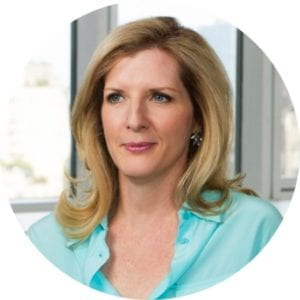 Kathryn Ruemmler is the Global Chair of the White Collar Defense & Investigations Practice and a partner in the Litigation & Trial Department.
Kathryn Ruemmler is the Global Chair of the White Collar Defense & Investigations Practice and a partner in the Litigation & Trial Department.
Ms. Ruemmler has broad experience advising individual executives and boards of directors in a wide range of matters, with a particular emphasis on government enforcement and regulatory matters and corporate governance. She has built a reputation as a formidable litigator with an unusual breadth of experience in crisis management, policy development, and regulatory and enforcement matters. She focuses on white collar criminal defense, SEC and other agency enforcement matters, and congressional and internal investigations. She is also an experienced first-chair trial lawyer. Known for her skilled representation of clients in both criminal and civil jury trials, clients in Chambers USA 2018 say Ms. Ruemmler is “a great strategic thinker” and “a real rare talent” and praise her as “a terrific advocate,” adding that “she has the judgment, legal skills and client management skills to represent her clients effectively.” Ms. Ruemmler rejoined the firm in 2014 after serving for almost six years in the Obama Administration, first in the Department of Justice (DOJ) and later as Counsel to the President. As President Obama’s chief lawyer, she was one of his most senior advisors, providing advice on all legal matters implicating domestic and foreign policy and national security. She advised on all significant litigation matters, including the most consequential cases heard by the United States Supreme Court. Ms. Ruemmler also managed the Administration’s response to congressional and other investigations and was responsible for the selection and nomination process of federal judges. President Obama has described her as having “an uncanny ability to see around the corners that no one else anticipates.”
Prior to her White House service, Ms. Ruemmler served as the Principal Associate Deputy Attorney General at the DOJ, joining on the first day of the Obama Administration as its highest-ranking political appointee. In that role, she was the Deputy Attorney General’s primary advisor on a range of criminal policy, law enforcement, national security, and civil litigation matters. She worked closely with the Attorney General and the Deputy Attorney General in the overall management and supervision of the DOJ’s components, including the United States Attorney’s Offices.
Ms. Ruemmler has significant jury trial experience and has tried more than 20 cases to verdict both inside the government and in private practice. She worked for six years as a federal prosecutor, first as an Assistant United States Attorney in Washington, D.C. and later as the Deputy Director of the Enron Task Force. Ms. Ruemmler was one of the lead prosecutors in the successful securities fraud prosecution of former Enron CEO’s Ken Lay and Jeff Skilling. She delivered the closing argument in that case and received the Attorney General’s Award for Exceptional Service, the DOJ’s highest award, for her performance.
Earlier in her career, Ms. Ruemmler served as Associate Counsel to President Bill Clinton where she defended the White House and the Office of the President in independent counsel and congressional investigations. She began her career as a law clerk to Judge Timothy K. Lewis of the United States Court of Appeals for the Third Circuit.
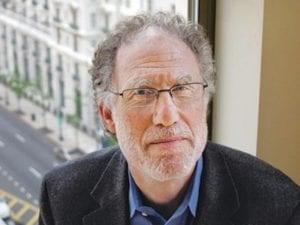 Bob Bauer is Professor of Practice and Distinguished Scholar in Residence at NYU Law, and Co-Director of NYU’s Legislative and Regulatory Process Clinic. He served as White House Counsel to President Obama, and returned to private practice in June 2011. In 2013, the President named Bauer to be Co-Chair of the Presidential Commission on Election Administration, which in January of 2014 submitted to the President its findings and recommendations in “The American Voting Experience: Report and Recommendations of the Presidential Commission on Election Administration.”
Bob Bauer is Professor of Practice and Distinguished Scholar in Residence at NYU Law, and Co-Director of NYU’s Legislative and Regulatory Process Clinic. He served as White House Counsel to President Obama, and returned to private practice in June 2011. In 2013, the President named Bauer to be Co-Chair of the Presidential Commission on Election Administration, which in January of 2014 submitted to the President its findings and recommendations in “The American Voting Experience: Report and Recommendations of the Presidential Commission on Election Administration.”
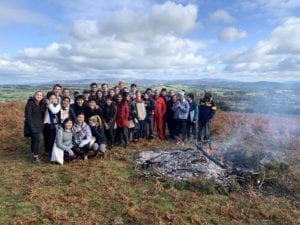 NYU London is committed to community service and to the environment and thus each term NYU London students have the opportunity to do some environmental volunteering. Every semester, the students alternate between going to Snowdonia (Spring) and Brecon Beacons (Fall), the two major National Parks in Wales. The tasks are usually similar but sometimes vary depending on the location. This semester, on October 19-20th, the NYU London students volunteered at the top of Pen-y-Crug and helped cut down gorse bushes that are taking over the landscape and making it difficult for native plants to survive. Some students helped cut and pull out the gorse while another team were tasked with burning them in one bonfire spot as they went along. Both trips are also great for students because they have an opportunity get to visit Welsh historic and cultural sites along the way. On the Brecon Beacons trip the students visit Chepstow Castle and on the Snowdonia trip they visit Conwy Castle. Students find it a gratifying experience to help the environment in this beautiful part of the country while also having the chance to learn about Welsh history and culture.
NYU London is committed to community service and to the environment and thus each term NYU London students have the opportunity to do some environmental volunteering. Every semester, the students alternate between going to Snowdonia (Spring) and Brecon Beacons (Fall), the two major National Parks in Wales. The tasks are usually similar but sometimes vary depending on the location. This semester, on October 19-20th, the NYU London students volunteered at the top of Pen-y-Crug and helped cut down gorse bushes that are taking over the landscape and making it difficult for native plants to survive. Some students helped cut and pull out the gorse while another team were tasked with burning them in one bonfire spot as they went along. Both trips are also great for students because they have an opportunity get to visit Welsh historic and cultural sites along the way. On the Brecon Beacons trip the students visit Chepstow Castle and on the Snowdonia trip they visit Conwy Castle. Students find it a gratifying experience to help the environment in this beautiful part of the country while also having the chance to learn about Welsh history and culture.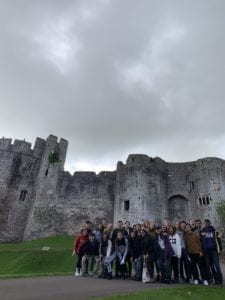 NYU London student Laura Zhang had this to say about the experience: Growing up in a suburban area and then going to school in NYC, I never really experienced the countryside. And when I signed up for the volunteer trip, I had little knowledge of Wales itself and pictured the national park to be similar to what I had seen before back home. (Which was probably Central Park/Letchworth State Park if we wanna up the stakes a little) So on the first afternoon in Wales when we all hiked up this massive mountain with steep hills and muddy paths, I was dying. But everything was so worth it when we got to the top and the view was amazing. It was a completely different world up there and I think the best way to sum up the whole trip is that crazy feeling of seeing and knowing you’re on this hill, in Wales, in the UK, a million miles from home but still not believing it. And of course the purpose of the trip was the volunteer experience as well, which was incredibly rewarding and definitely character-building; I don’t think many people can say they’ve taken down massive gorse bushes in Wales. Overall, I personally felt that this trip was and is a defining part of my study abroad experience in London.
NYU London student Laura Zhang had this to say about the experience: Growing up in a suburban area and then going to school in NYC, I never really experienced the countryside. And when I signed up for the volunteer trip, I had little knowledge of Wales itself and pictured the national park to be similar to what I had seen before back home. (Which was probably Central Park/Letchworth State Park if we wanna up the stakes a little) So on the first afternoon in Wales when we all hiked up this massive mountain with steep hills and muddy paths, I was dying. But everything was so worth it when we got to the top and the view was amazing. It was a completely different world up there and I think the best way to sum up the whole trip is that crazy feeling of seeing and knowing you’re on this hill, in Wales, in the UK, a million miles from home but still not believing it. And of course the purpose of the trip was the volunteer experience as well, which was incredibly rewarding and definitely character-building; I don’t think many people can say they’ve taken down massive gorse bushes in Wales. Overall, I personally felt that this trip was and is a defining part of my study abroad experience in London.